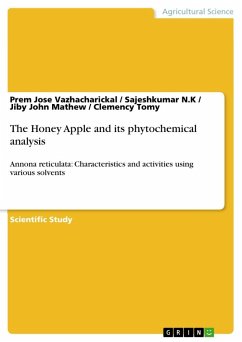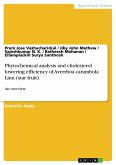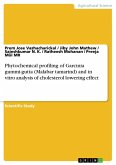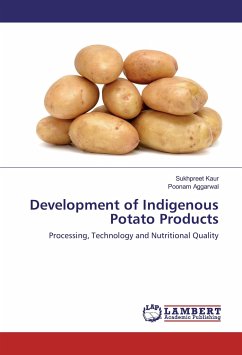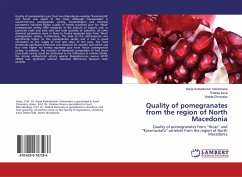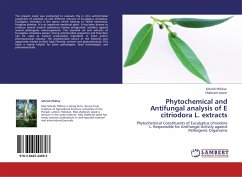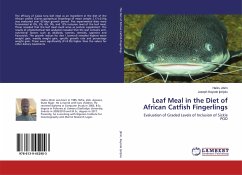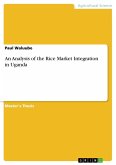Scientific Study from the year 2016 in the subject Agrarian Studies, grade: 1.5, Mar Augusthinose College, language: English, abstract: This study aims at the attributes of the Annona reticulata and its medical and biological value. Annona reticulata belongs to the family Annonaceae, commonly known as honey apple. Qualitative phytochemical analysis of chloroform and water extracts of Annona reticulata fruit, leaf and stem bark was conducted in order to detect the presence of various secondary metabolites using standard procedures. The results of phytochemical screening indicated the presence of secondary metabolites such as tannins, betacyanins, carbohydrates, alkaloids, terpenoids, phenols, quinines, saponins, cardiac glycosides etc. Also the comparative antimicrobial activity of chloroform and water extracts of fruit, leaf and stem bark of Annona reticulata was evaluated against four bacterial species namely, Escherichia coli, Pseudomonas aeruginosa, Serratia marcescens and Micrococcus luteus and two fungal species namely Candida albicans and Rhizopus. Agar well diffusion method and disc diffusion method were selected to check the antimicrobial activities of the extracts. The study revealed that the chloroform extracts of leaf, stem bark and fruit of Annona reticulata has activity against the bacterial strains and fungal strains. Whereas, the water extracts of leaf, fruit and stem bark of Annona reticulata has more activity towards the fungal species. The findings of this study have identified that Annona reticulata extracts acts as a promising source of antimicrobial agent which could be useful in the modern medicine.

